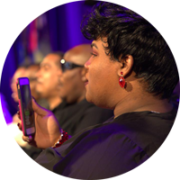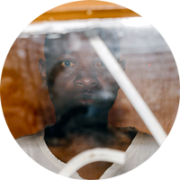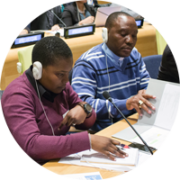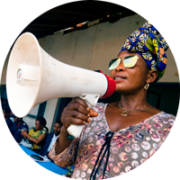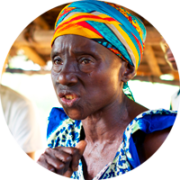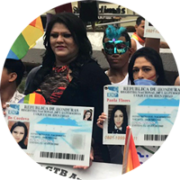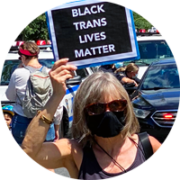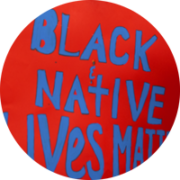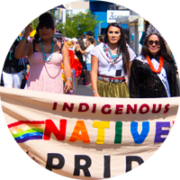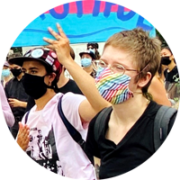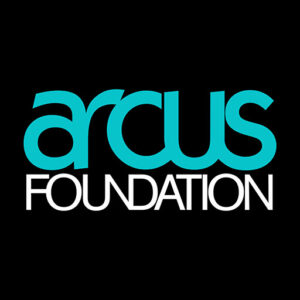Gender Dynamix’s purpose is to foreground the needs of and advance human rights realisations for trans and gender-diverse persons in southern Africa through its various interventions, which are available on our website.
To understand what social justice for trans and gender-diverse persons in Southern Africa looks like requires an unpacking of the geopolitics of the region in relation to the global arena and how this relationship shapes adverse socioeconomic outcomes for various communities. Poor economic performance coupled with high levels of corruption have resulted in massive general unemployment rates and inequalities with Black youth bearing the brunt. COVID-19 has resulted in increased joblessness with the unemployment rate set to peak as high as 50 percent in South Africa. This situation serves to maintain and exacerbate the devastating pre-existing cycle of disempowerment, indignity, and violence against women, girls, and LGBTIAQ+ people. In spite of same-sex marriage and access (albeit pathologising) to legal gender recognition being possible in South Africa, the queer liberation capital of Africa remains shockingly marred by socioeconomic inequalities framed by racialized classism against the backdrop of gender-based oppression, femicide, and hate-motivated crimes.
Southern Africa presents various dynamics to contend with in defining dignity for trans and gender-diverse people in relation to the general population. For example, how do we politicize toilets in promoting dignity for trans and gender-diverse persons through the adoption of gender-neutral public toilets and practices when the majority of people do not even have dignified and safe access to toilets? How do we politicize healthcare and advocate for access to gender-affirming medical and surgical care when the majority of our people do not even have access to quality public healthcare? How do we advocate for respect and dignity for trans womxn of colour in prison when criminal justice systems have themselves been built on the criminalization of diverse Black identities, same-sex desires, trans and gender-diverse identities and expressions, sex work, and poverty, amongst others. These questions prompt us to rethink, reconceptualize, and redesign the ways in which we approach and contribute to social justice work to build a truly just and equitable society. To champion human rights realisations in Southern Africa requires approaches that can realize the needs of trans and gender-diverse persons by addressing multiple systems of oppression simultaneously. This can only be achieved by strengthening trans organizing in the region, complemented by cross-movement solidarities for action.
As we struggle for our liberation, we remain subject to social erasure enabled by non-recognition, pathologised recognition, and/or criminalized recognition as means to (re)inforce the cisnormative, gender-binary model of legal recognition. This model is one of the anchors that maintains structural and systemic violence against trans and gender-diverse persons in Southern Africa. At an individual level, we continue to define our needs as including access to food security; shelter and housing; freedom from all forms of stigma, discrimination, and violence—particularly those that are hate motivated; access to healthcare that is gender-affirming; legal recognition on the basis of gender self-determination; decriminalization of sex work; and inclusive quality education for viable employment opportunities, amongst others. At a collective level there remains a strong need to build community and strengthen the overall emerging trans and gender-diverse movement in Southern Africa for higher impact action for positive trans and gender-diverse affirming change. Consequently, the prioritization of building sustainable communities and societies in the context of environmental sustainability continues to be eclipsed by the practical importance of having more immediate and material needs met.
In addition to the key priorities outlined above, new challenges constantly emerge that require intervention sometimes with the sole purpose of merely holding on to human rights victories. With the rise of the “gender ideology” movement globally, one major concern on the horizon is the possible and devastating effect which this conservative movement may have on human rights realisations for trans and gender-diverse persons and women across the region. This coupled with anti-trans, anti-queer, and anti-women religious, cultural, and politically conservative groups may significantly curtail human rights advancement if not recognized as a risk and challenged. As funding initially destined for human rights work is repurposed to resource frontline emergency responses to combat COVID-19, a lot of questions persist as to the consequences ahead in the event of funders deprioritizing resourcing human rights advocacy, organizing, and organisations. In turn, the fear is also that this may result in increased competition for resources amongst partners which may lead to contradictory outcomes such as weakened or collapsed organizations and national and regional movements. As we also increasingly shift into a digital era, we see the ever-growing digital divides and challenges across Southern Africa resulting from poor digital connectivity, exorbitant data costs, lack of access to information and communication-technology equipment, lack of access to knowledge about such devices and artificial intelligence, and little information on the current legal frameworks governing information and data across the region.
In looking at what the future holds, if there is anything that COVID-19 is teaching us, it is that the future is undeniably digital, that human rights are fragile, that we have to live more harmoniously with our planet, and that we are more equipped to succeed when we approach challenges in solidarity. It is in the spirit of adopting digitalism, living harmoniously, and embracing solidarities that Gender Dynamix seeks to contribute to building a trans and gender-diverse inclusive future. As we adapt to new realities about the world we live in, we find hope in the knowledge and values indigenous, excluded, and forgotten communities may share with us to build more inclusive and transformed societies. As we recognize the impact of exploitation for short-term gain, we are inspired by our youth who remain hellbent on holding governments and multinationals accountable for wanting to hijack the future. As social inequities are proliferated based on prejudice and hate, we are reminded of the power of visibilising hypocrisy and abuse of power. As hierarchical ways of organizing reveal social inequity, corruption, injustice, and unsustainability as predictable outcomes, we look to intersectional feminist praxis as a viable model to advance power-sharing and inclusive development for collective prosperity. ▅


